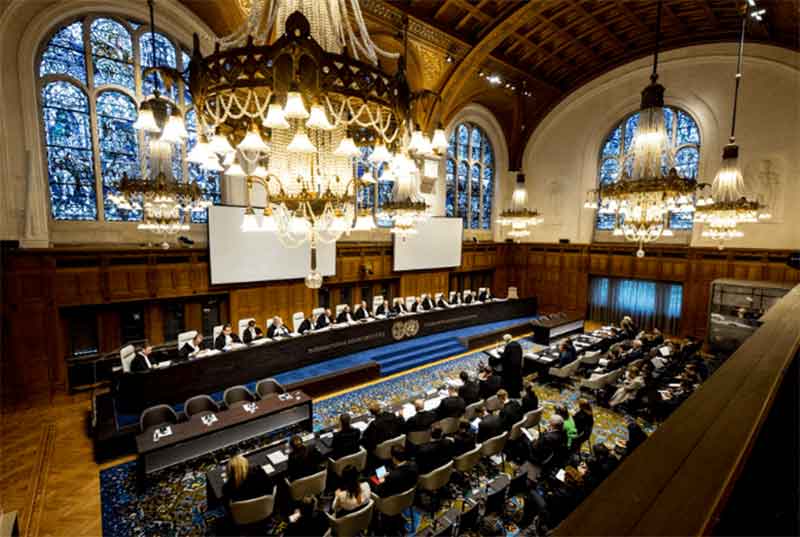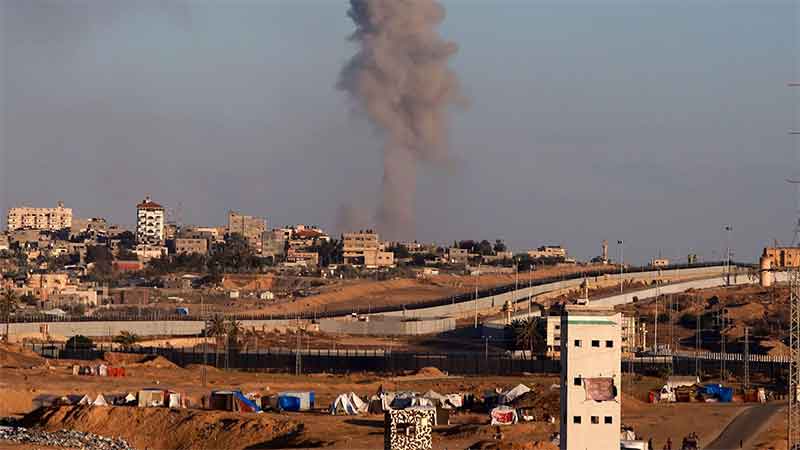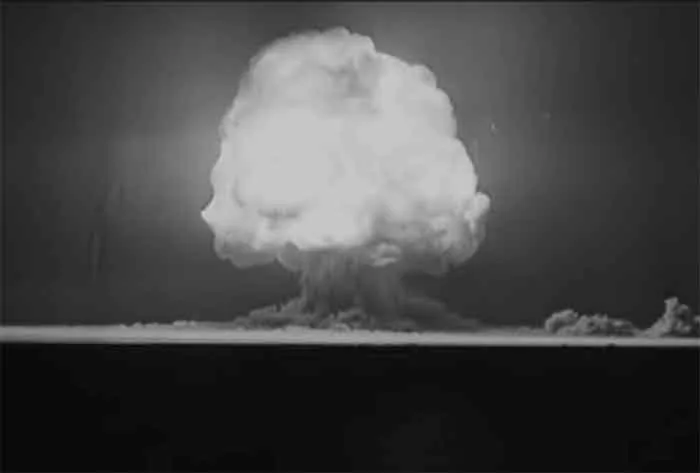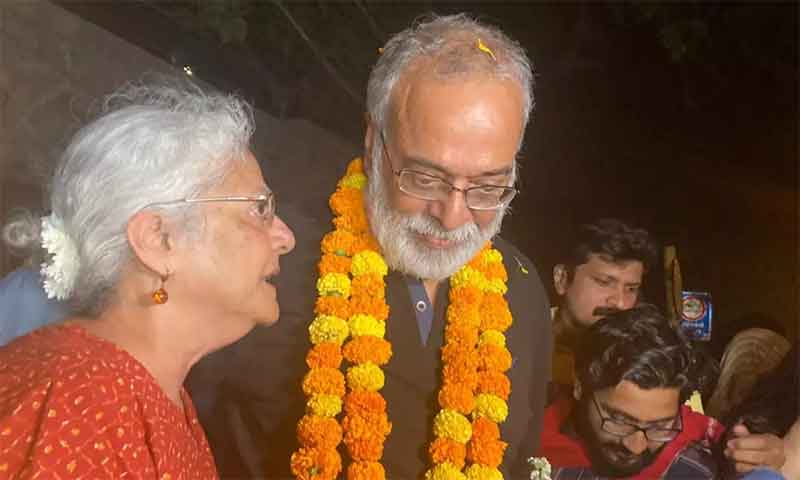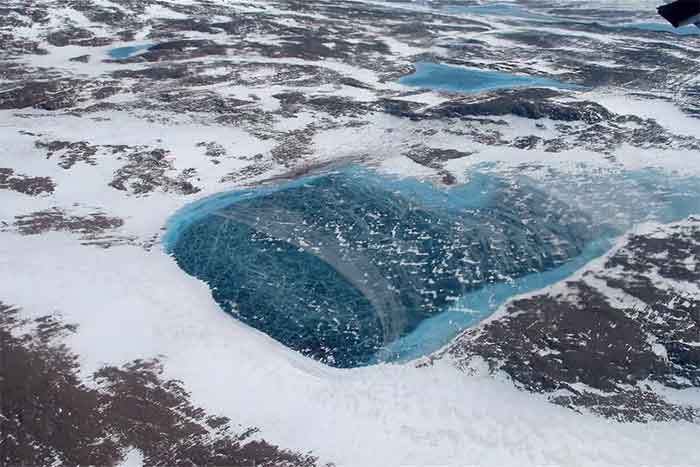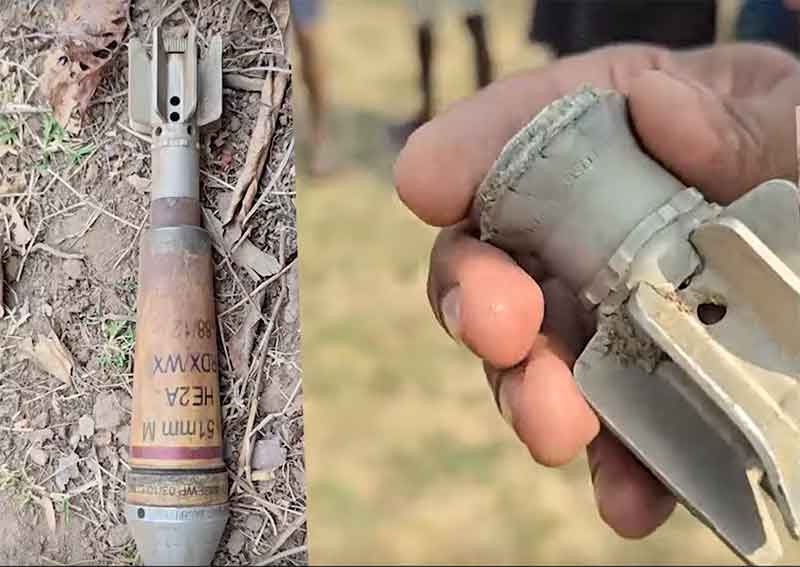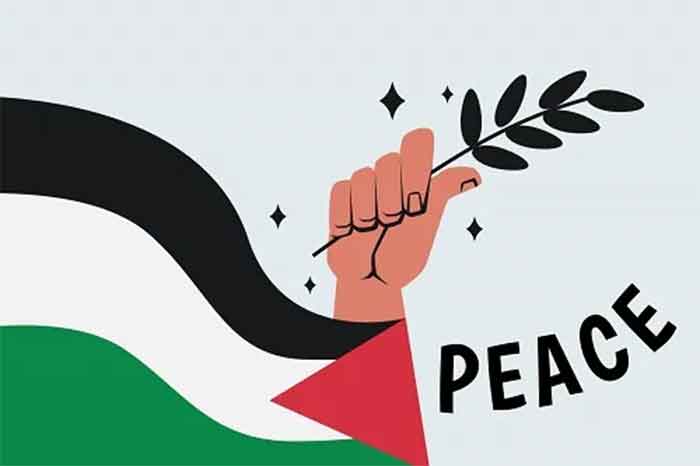
There have been many-sided escalations in the Middle-East conflict which started with the October 7 attack on Israel followed by a highly disproportionate and massive attack on Gaza by Israel which is still continuing in the 4th month with hardly any signs of stopping in the very near future.
The need for ceasefire and peace in the context of this base conflict is the most urgent need of this region, both to prevent the massive distress related to this conflict as well as to prevent escalation. Hence it is very important to explore fully whatever possibilities exist for early peace. Fortunately some possibilities still exist despite the overall highly worrying situation. Before coming to these peace possibilities, let us first look at the wider spread and escalations of this conflict.
While Israeli invasion has been confined to Gaza, there has been simultaneous stepping up of aggression and violent incidents in the West Bank region resulting in many deaths.
There has been escalation in the exchange of rockets or other fire between Israel and Hezbollah militia based in Lebanon. While this has been worrying, still on the whole one can be thankful that this has not yet blown into a bigger conflict although of course the possibilities still remain. Lt. Gen. (Retired) Gadi Eisenkot, a non-voting member of the Israeli war cabinet stated recently in an interview on January 18 that a pre-emptive strike on Hezbollah by Israel was called off only at the last minute by Israel in the early stages of the war. He said that he was among those who had opposed such an attack in an important meeting on October 11 as this would have led to a regional war. He said that he left this meeting hoarse from shouting which indicates that there must have been a very intense and hot debate on this issue.
General Eisenkot, a retired military chief of staff, has also lost a son and a nephew in the war and yet he is so keen to avoid an escalation and to move towards peace. The interview with him reminded me about another interview with an Israeli farmer in a documentary by John Pilger. This farmer had only a short while back (a little before the filming) lost his dearest daughter, a very talented schoolgirl full of life, in a suicide bombing by a Palestinian, one of those completely innocent victims of such attacks, and yet he was not revengeful at all. Instead he said that we should try to understand the cause of the desperation of the people on the other side and how they have suffered. As long as there are such people, the cause of peace will never be lost.
In addition there has been an attack close to Beirut in which a Hamas leader close to Hezbollah was killed, and some retaliatory action from Hezbollah.
On January 20 Iran blamed Israel for a strike on Damascus which killed 5 of its Islamic Guards while some Syrian personnel were also killed. Iran also stated that it reserved the right to respond.
In another part of conflict the Houthis of Yemen have sent several rockets flying to Israel as well as to Israel related ships passing closer to Houthi territory in Yemen in the Red Sea region. In the process ships of other countries can also suffer damage unintentionally. There has been exchange of fire with the USA ships and several Houthi areas have been heavily bombed by the USA. The risk of further escalation on this front remains. In addition there is considerable economic loss to several countries as many ships take a longer route in the interests of safety.
In another extension of the conflict situation in the wider Red Sea region, tensions have increased in the Horn of Africa region between Somalia on the one hand and Ethiopia and Somaliland on the other hand due to the leasing of a 20 km coastal area stretch by Somaliland to Ethiopia. As Somaliland has seceded from Somalia and Somalia does not recognize its right to lease land to others, this can lead to conflict, and some other neighboring countries may get involved, at a time when the Horn of Africa region really needs peace. This worsening of tensions here is not related to the base conflict in Gaza of course but impacts the crisis situation in the wider Red Sea region.
Iraq has several Shia militias friendly to Iran and hostile to the USA. When Gaza was attacked US military bases here were attacked here and in Syria by such militias many times in small ways. In an unexpected turn of events Iran attacked a base of militants hostile to it in Kurd dominated area of Iraq which led to strong objections from Iraq and diplomatic steps.
In another unexpected escalation outside the main conflict region, Iran also targeted separatists based in Pakistan resulting in a retaliatory strike by Pakistan.
The three Hs hostile to Israel and the USA–Hamas, Hezbollah and Houthis– are widely believed to receive arms and other help from Iran and their close relations are widely known, although there is no evidence that the October 7 attack was in any way encouraged or approved by Iran or that Iran had prior knowledge of this. However a main and high risk possibility is that of a direct conflict between Iran and Israel which could bring in the USA as well. Two senior commanders of Iran were assassinated in Syria. Iran blamed Israel. In early January suicide blasts in Kerman, Iran, claimed 100 lives in the deadliest terrorist attack in Iran in recent years. The Islamic State took responsibility for this.
In a news conference on January 18, Israeli Prime Minister Benjamin ‘Bibi’ Netanyahu said, when asked about efforts to counter Iran—“Who told you we weren’t attacking Iran? We’re attacking!”
Hence it is clear that there are many dangerous possibilities of escalation and a bigger regional war. At the same time there are still some openings for peace which can be taken forward carefully. One of these of course relates to the possibility of a provisional decision from the International Court of Justice (ICJ) which provides not just for stepped-up relief but also for ceasefire and peace. This can still be vetoed in the Security Council (of the UN), but if instead the peace movement in the USA and other western countries has succeeded by then in creating very strong public opinion for peace, then it is just possible that any ICJ ruling for peace may get implemented.
Another possibility has emerged from Netanyahu taking such an extreme aggressive stand that despite the amazingly strong support extended by the USA to Israeli aggression in the past, there have been some indications of the USA moving away at least somewhat from such unconditional support in the near future for Netanyahu. While Netanyahu and some of his aggressive colleagues have indicated support for permanently displacing the people of Gaza to various extents in various statements, top US policy makers appear to be distancing themselves from such actions or plans in recent statements. Netanyahu is increasingly rejecting two-state solution and sovereignty for Palestine by saying that this does not ensure security of Israel. On the other hand President Joe Biden has suggested that a revitalized Palestinian Authority can run a post-Hamas Gaza as an interim step towards the realization of the goal of sovereignty. US state department spokesman Matthew Miller stated on January 18 that there is no way to rebuild Gaza, provide lasting security there or establish governance there without establishing a Palestinian state.
Following January 18 statements of leaders of the USA and Israel which appeared to highlight significant emerging differences, Netanyahu and Biden appeared to be attempting damage control with a phone call on January 19, the first time in nearly a month. After the call they somehow tried to paper over the differences that had appear so clearly just a day before, with Biden saying now that Netanyahu could agree to some form of Palestinian state. However, it is clear that the USA is finding it difficult to be accommodative towards what Netanyahu really wants. The very fact that the two leaders Biden and Netanyahu did not speak on phone for nearly a month of the crisis indicates that there are differences.
In the European Union also one can see growing unease with Netanyahu’s highly aggressive agenda. The EU’s top diplomat Josep Borrell stated on January 19 in a speech in Spanish at the University of Valladolid, “We believe that a two-state solution must be imposed from outside to bring peace. Although, I insist, Israel is reaffirming its refusal (of this solution) and to prevent it they have gone so far as to create Hamas themselves… Hamas has been financed by the Israeli government to try to weaken the Israeli Palestinian Authority of Fatah. But if we do not intervene strongly, the spirit of hate and violence will continue from generation to generation, from funeral to funeral.” (English translation released by Bloomberg, published in The Times of India, January 21).
What is important here is that this senior diplomat has stated that a two state solution can be imposed from the outside if Netanyahu is not agreeable to accepting this.
Serious differences can be seen within Israel too. Retired General Eisenkot, in an interview on January 18, made a strong plea for an early ceasefire, particularly to secure early release of hostages, while on the same day Netanyahu vowed not to compromise on the goal of ‘total victory’ over Hamas and urged the public to prepare for long months of fighting. Families of hostages have been protesting outside Netanyahu’s home.
Keeping in view these significant differences of opinion within Israel and even within the war cabinet of Israel, also keeping in view Netanyahu’s personal reasons for a very aggressive agenda, if a campaign can lead to the ousting of Netanyahu and his most aggressive partners from power and instead if Israel can have a government much more committed to peace, then overall chances of peace will increase. Failure to act on warnings regarding October 7 attack, which more and more looks like a deliberate failure at the top level, can also add to the other causes for removing Netanyahu from his top position. If at the same time a force more committed to peace emerges among Palestinians, or if Hamas openly declares its commitment to peace and co-existence with Israel, then chances for peace can increase even more, ultimately paving the way for a two-state solution.
As the US government has stated recently that it is committed to a sovereign Palestinian state it can go with solutions along these lines and lend its weight to this, with further support from the European Union. While all these efforts are peaking, if a favorable decision also comes from the ICJ then chances of peace will increase even more.
Peace activists can’t afford to be angry or impatient, and instead must explore whatever peace openings exist with care and caution to make the best of them.
Bharat Dogra is Honorary Convener, Campaign to Save Earth Now. His recent books include Protecting Earth for Children, Planet in Peril, A Day in 2071 and Earth without Borders.


